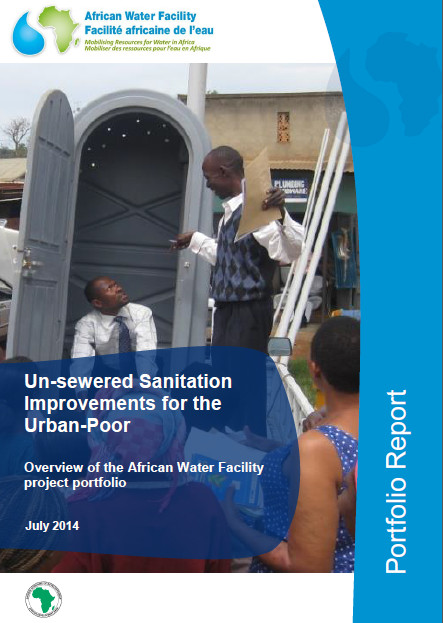Un-sewered Sanitation Improvements for the Urban Poor
 |
informe Jul 2014 ; 71 páginas
Aut. Goufrane Mansour & Sophie Trémolet & Marie-Alix Prat
Ed. FAE - Abidjan
Formato descargable: PdF
Descargable desde el editor
Un editor presentación
Résumé:
Ce rapport rend compte des enseignements tirés de la conception et la mise en śuvre de 14 projets d'assainissement urbains innovants visant ŕ améliorer la gestion des boues de vidange dans les zones urbaines pauvres d'Afrique. Le rapport veut mettre en exergue la façon dont les projets ont su incorporer des stratégies visant ŕ promouvoir la fourniture de services d'assainissement qui soit efficace et durable. Abstract:
The AWF is currently supporting 14 innovative urban sanitation projects aiming at improving the management of excreta in poor urban areas in Africa. These are a broad mix of projects intervening at different steps of the sanitation value chain, both on the demand and on the supply sides of the market, with a view to promote an integrated approach to urban sanitation services provision. The present report seeks to capture emerging lessons from the design and implementation of these projects, with a particular focus on identifying how the projects have incorporated strategies to promote sustainability. This report analyses these AWF sanitation projects along what can be called the "Five building blocks of sustainability": fostering demand for sanitation products and services (including for faecal sludge reuse products), developing service providers’ capacity, facilitating access to finance for latrines users and service providers, developing a business approach to sanitation services and strengthening municipal institutions.
Palabras claves: |
acceso a saneamiento (CI) (DT) (HP) (ope) , comunidades de ingresos bajos (CI) (DT) (HP) (ope) , financiamiento (CI) (DT) (HP) (ope) |
Editor/Difusor: |
|
FAE
-
Facilité africaine de l'eau - Abidjan - Costa de Marfil |
Si hay un enlace roto, estaremos encantados de recibir un mensaje: communication@pseau.org